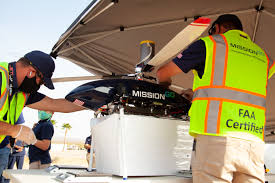
Breaking News
 How Close Were Iran Negotiations Before Trump Flipped the Table?
How Close Were Iran Negotiations Before Trump Flipped the Table?
 Peter Schiff: It's Time to Axe Entitlements
Peter Schiff: It's Time to Axe Entitlements
 The First Automated Rammed Earth House Building Machine - Form Earth
The First Automated Rammed Earth House Building Machine - Form Earth
 We Build and Test Microwave Blocking Panels - Invisible to Radar
We Build and Test Microwave Blocking Panels - Invisible to Radar
Top Tech News
 US particle accelerators turn nuclear waste into electricity, cut radioactive life by 99.7%
US particle accelerators turn nuclear waste into electricity, cut radioactive life by 99.7%
 Blast Them: A Rutgers Scientist Uses Lasers to Kill Weeds
Blast Them: A Rutgers Scientist Uses Lasers to Kill Weeds
 H100 GPUs that cost $40,000 new are now selling for around $6,000 on eBay, an 85% drop.
H100 GPUs that cost $40,000 new are now selling for around $6,000 on eBay, an 85% drop.
 We finally know exactly why spider silk is stronger than steel.
We finally know exactly why spider silk is stronger than steel.
 She ran out of options at 12. Then her own cells came back to save her.
She ran out of options at 12. Then her own cells came back to save her.
 A cardiovascular revolution is silently unfolding in cardiac intervention labs.
A cardiovascular revolution is silently unfolding in cardiac intervention labs.
 DARPA chooses two to develop insect-size robots for complex jobs like disaster relief...
DARPA chooses two to develop insect-size robots for complex jobs like disaster relief...
 Multimaterial 3D printer builds fully functional electric motor from scratch in hours
Multimaterial 3D printer builds fully functional electric motor from scratch in hours
 WindRunner: The largest cargo aircraft ever to be built, capable of carrying six Chinooks
WindRunner: The largest cargo aircraft ever to be built, capable of carrying six Chinooks
Drone carries human kidney over Las Vegas desert in what could be the future of organ transportation

Drones are used today for a variety of tasks – delivering small express packages, assisting in search and rescue operations and capturing stunning aerial views views, to name just a few.
Get ready to add one more to the growing list: human organ transit.
Researchers at MissionGO, a provider of unmanned aviation solutions, and the Nevada Donor Network, an organ procurement organization, announced last week two successful test flights carrying a human organ and tissue via drones in Las Vegas.
The first flight on Sept. 17 transported research corneas from one hospital to another about 2½ miles away. On the same day, a second flight delivered research kidneys 10 miles, from an airport to a location outside a small town in the Las Vegas desert.

 RNA Crop Spray: Should We Be Worried?
RNA Crop Spray: Should We Be Worried?

